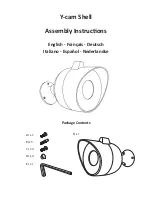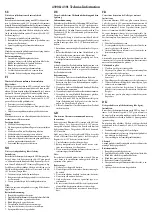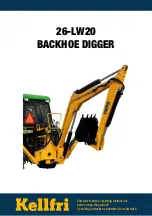
15
▶
Charge the batteries using the
Hilti
chargers approved for use with
Li-ion batteries.
Note
Ideally, the battery should be stored in a fully-charged state in a dry
place that is as cool as possible. Storing the battery in places subject
to high ambient temperatures (e.g. at a window) has an adverse
effect on battery life and increases the rate of self-discharge.
If the battery no longer reaches full charge, it may have lost capacity
due to aging or overstressing. It is still possible to work with this
battery. You should, however, soon replace the battery with a new
one.
7 Disposal
DANGER
Health hazards
Improper disposal of the battery may have serious
consequences: the burning of plastic components generates toxic
fumes which may present a health hazard. Batteries may explode if
damaged or exposed to very high temperatures, causing poisoning,
burns, acid burns or environmental pollution. Careless disposal may
permit unauthorized and improper use of the battery. This may result in
serious injury of the person concerned or of third parties and pollution
of the environment.
▶
Dispose of defective batteries right away. Keep them out of reach of
children.
Never
dismantle or incinerate batteries.
▶
Batteries that have reached the end of their life must be disposed of
in accordance with national regulations or returned to
Hilti
.
Most of the materials from which
Hilti
tools, appliances and devices are
manufactured can be recycled. The materials must be correctly separated
before they can be recycled. In many countries,
Hilti
has already made
arrangements for taking back old tools, appliances or devices for recycling.
Ask
Hilti
Customer Service or your Hilti representative for further information.
▶
Do not dispose of batteries together with household waste.
8 Manufacturer’s warranty
▶
Please contact your local
Hilti
representative if you have questions
about the warranty conditions.
Printed: 17.12.2015 | Doc-Nr: PUB / 5261757 / 000 / 00










































